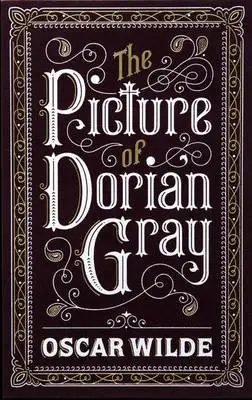Book #45
The Picture of Dorian Gray by Oscar Wilde
Dorian is a good-natured young man until he discovers the power of his own exceptional beauty. As he gradually sinks deep into a frivolous, glamorous world of selfish luxury, he apparently remains physically unchanged by the stresses of his corrupt lifestyle and untouched by age. But up in his attic, hidden behind a curtain, his portrait tells a different story.
I’m not sure which I loved more; this story, or the questions it poses. If you could cast all of your sins onto an object, an object which will rot and decay with each wrongdoing, would you try to be good to preserve the object, having a tangible reminder of your morality as an incentive? Or would you consider the object your saviour, and allow it go to seed as the foulness of your soul becomes more and more visible each day?
Dorian Gray chooses the latter, and in doing so allows us to wander through his malicious deeds and see him digress from a pure young man into a horrible villain without even obtaining the smallest wrinkle.
Of course, Gray’s gorgeous good looks and perpetually young face make others believe he is truly good. Associating goodness with appearance, as we know, is incredibly problematic, and Wilde shows us this clearly. It’s also disappointing to note that this still happens today - we’ve advanced almost 130 years since this work was first published and people are still discriminated against based on how they look. Ironically, this is the novel where the below quote is taken from:
I wonder what each of us would do in a life of no consequence. It really doesn’t bear thinking about. But Wilde shows us the emotional effects of a life without dread, without grief, without regret. Gray becomes a numb, emotionless void. His only joy is in his sin and vanity, with the aftermath being borne by a painting in a locked room.
Although Wilde has written this novel as an exploration into the human condition rather than a fantasy, I forgive him for this. I don’t even think there was such a genre as fantasy in Wilde’s day. However, the picture itself is in the novel only a few times. I would’ve loved to have found out how this curse managed to take root; I would have liked to have been able to witness the slow decay after each of Gray’s transgressions. Despite these hopes, the social commentary and the moral questions posed more than made up for it all.
There is so much to take away from this. Melancholy, brilliant, with the perfect hints to Faust, I was mesmerised.

